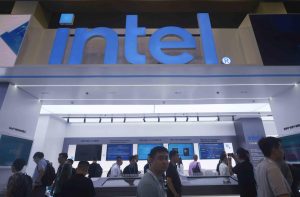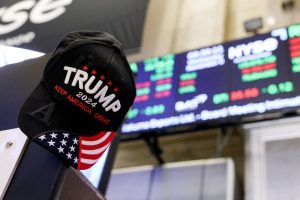
Retailers across the U.S. and Europe are rolling out Black Friday deals, enticing shoppers with exclusive items and substantial discounts. This comes as stores opened as early as 5 a.m. following Thanksgiving, aiming to draw in consumers despite a condensed shopping season.
What Happened: U.S. and European retailers are enticing bargain hunters with exclusive products and significant discounts this Black Friday. As stores opened as early as 5 a.m. following Thanksgiving, retailers are eager to attract shoppers despite a shortened shopping season, Reuters reported.
At 5:30 a.m. outside a Target Corp. TGT in North Bergen, New Jersey, 20 people queued up for the 6 a.m. opening, with many eager to purchase exclusive Taylor Swift merchandise. Store manager Jonathan Baldera noted it was the first time since the pandemic that people lined up outside on Black Friday, attributing the turnout to the “Taylor Swift craze.”
In London, Currys reported high demand for products like the Sony PlayStation 5 and retro-tech items.
In the U.S., Walmart Inc. WMT and other major retailers like Best Buy BBY and Home Depot HD opened early, offering deals on electronics and home goods. The National Retail Federation anticipates 85.6 million shoppers will visit stores this year, up from last year’s 76 million, despite the shortened 26-day shopping period between Thanksgiving and Christmas.
Why It Matters: The significance of this year’s Black Friday is underscored by the expectation of record-breaking sales during the Black Friday to Cyber Monday period. Management consultancy firm Bain & Company forecasts U.S. retail sales to reach $75 billion, marking a 5% increase from last year. This period is projected to account for 8% of total holiday sales, the highest share since 2019. The evolving shopping habits, with consumers purchasing earlier due to ongoing discounts, highlight the strategic importance of this period for retailers.
However, a survey by KnownHost, reveals that not all Black Friday deals are as genuine as they appear. The study found that nearly a third of the deals were not true savings, with some prices inflated before the event to create the illusion of discounts. This insight into consumer behavior and market strategies is crucial for understanding the dynamics of the holiday shopping season.
Read Next:
Disclaimer: This content was partially produced with the help of Benzinga Neuro and was reviewed and published by Benzinga editors.
Image via Shutterstock
Market News and Data brought to you by Benzinga APIs
© 2024 Benzinga.com. Benzinga does not provide investment advice. All rights reserved.


